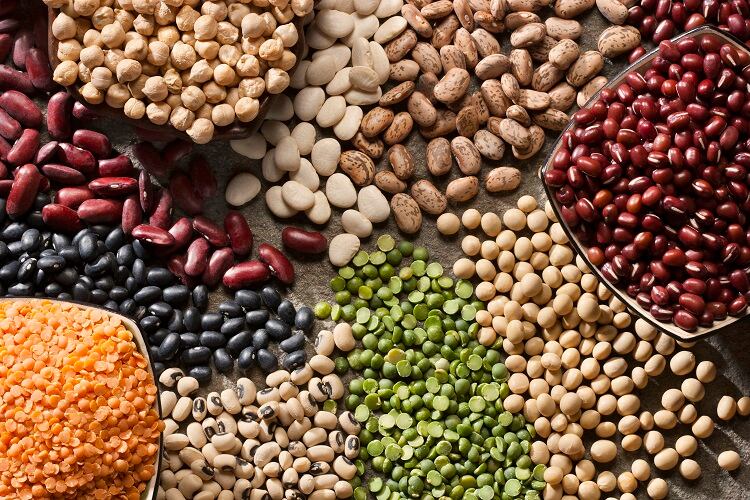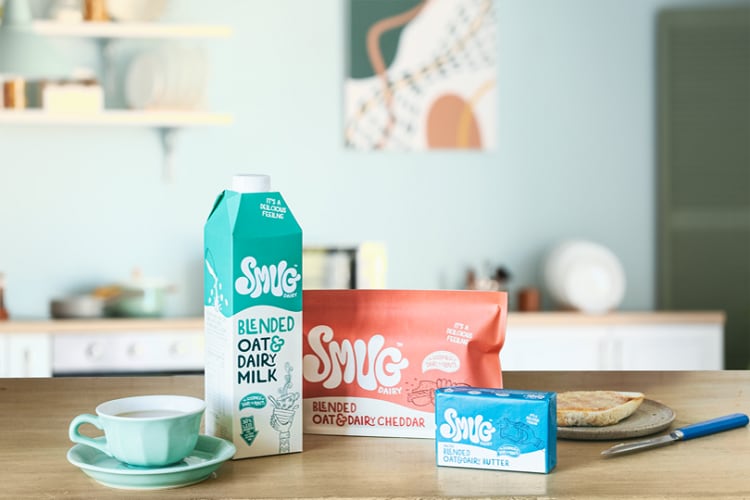The plant-based dairy market continues to grow. Globally, plant-based dairy – made up of milk, yoghurt, cheese, ice cream and creamer alternatives – is expected to skyrocket in the coming years, from $27bn (€24.8bn) in 2023 to $43.6bn by 2028.
Growing to a lesser degree, however, is the range of raw materials used to develop these products. The most popular ingredients used in plant-based dairy remain almond, soy, oat, rice, and coconut.
Some of these are more sustainable, or more likely to provoke allergies and intolerances, than others. As a result, industry continues to search for new raw materials to use in plant-based dairy formulation.
From green peas to pinto beans, we’ve rounded up plant-based ingredients being put under the microscope to test their potential in plant-based dairy.
Upcycling broken pinto beans into alt dairy
Pinto beans, otherwise known as carioca beans, are considered a ‘promising’ raw material for dairy alternatives. Researchers at the Fraunhofer Institute for Process Engineering and Packaging IVV in Germany and the University of Campinas in Brazil have been investigating their use with environmental sustainability in mind.
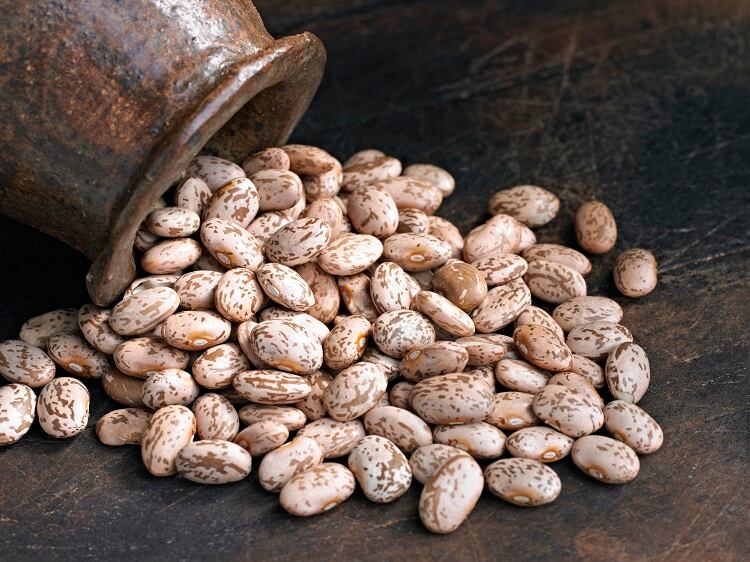
The pinto bean is considered an everyday staple in Brazil, where it is grown in large quantities. For an idea of just how integral the pinto bean is to Brazilian agriculture, the country produces an estimated 3.1m tonnes of beans annually. A whopping 70% of those are pinto beans.
However, in the post-harvest washing process, around 4% of pinto beans are broken. Given their nutritional benefits – pinto is made up of around 22% protein and 42% starch – researchers have been keen to find other uses for this agricultural waste product.
Compared to existing dairy substitutes, researchers believe broken pinto beans could offer the optimum ratio of protein and starch with improved functional and nutritional properties. What’s more, it could do all that without the need for additives such as emulsifiers and stabilisers.
Prototypes developed to date include pinto-based milk and yoghurt alternatives, as well as a plant-based pudding product.
Fermented cheese made from green peas
Of all the plant-based dairy alternatives, plant-based cheese is likely in the most need of innovation.
When based on coconut oil and starch, vegan cheeses have been described as ‘sticky’ or ‘tacky’ and lacking in stretch and meltability. Further,
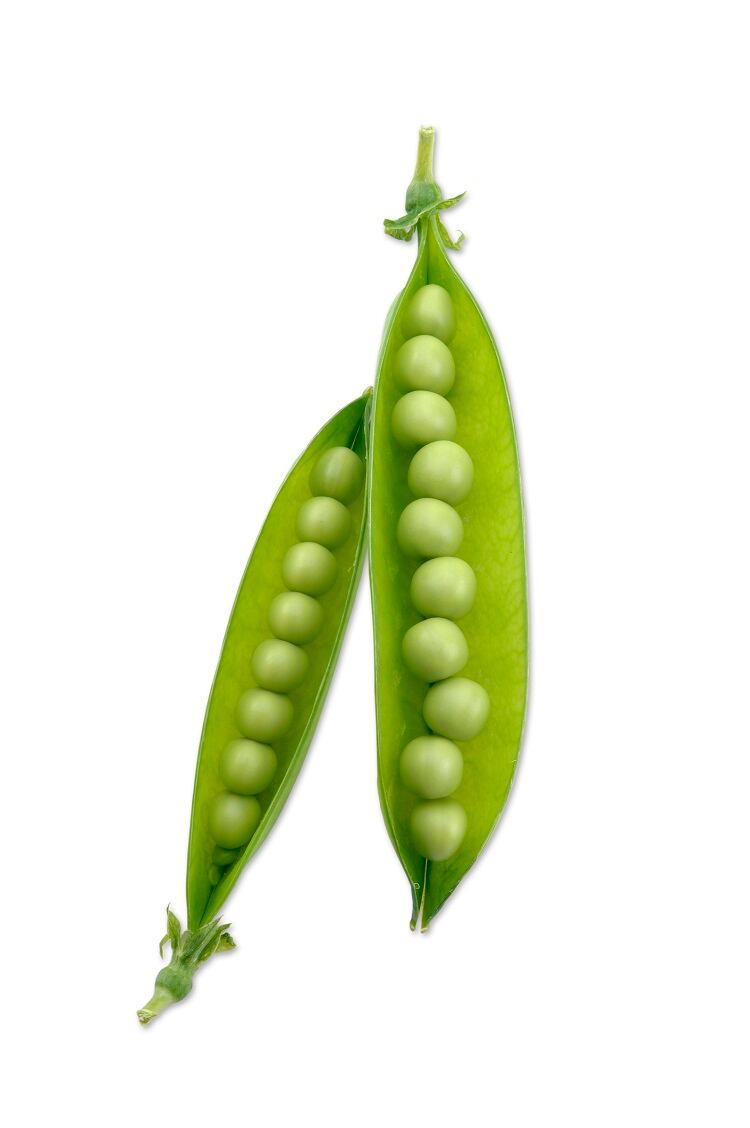
consumers are often sceptical about their ingredients lists.
A research project with input from Fraunhofer IVV, together with dairies and manufacturers of vegan products, an ingredients supplier and a gastronomic business, has been investigating whether a new kind of dairy-free cheese could be developed from green peas.
The pea (Pisum sativum L.) contains around 20-25% protein and boasts an amino acid profile high in lysine and arginine. Since peas are readily available, often grown locally and can be non-GMO, they are thought to have higher consumer acceptance than soybeans. Furthermore, they have functional benefits, such as being soluble and having emulsifying and gelling properties.
For those reasons, researchers believe the green pea could produce ‘cheese-like’ textures.
An obvious challenge surrounds their often-strong bean-like taste, but if used to make fermented plant-based cheese, it’s thought these off-flavours could be reduced during the cheesemaking process.
Cheese-like aromas made from plant proteins and oils
In conventional cheese production, the fermentation process ‘ripens’ the cheese to produce a complex variety of aromas and an elastic texture. In plant-based cheese, however, that important fermentation step is often missing – and with it, those ‘cheesy’ aromas.
In Germany, a research project that started last year aims to develop plant-based cheese alternatives with authentic cheese aromas. Coined the KäromaVeg project, researchers from Fraunhofer IVV are looking to develop these aromas based on the microbial conversion of plant-based aroma
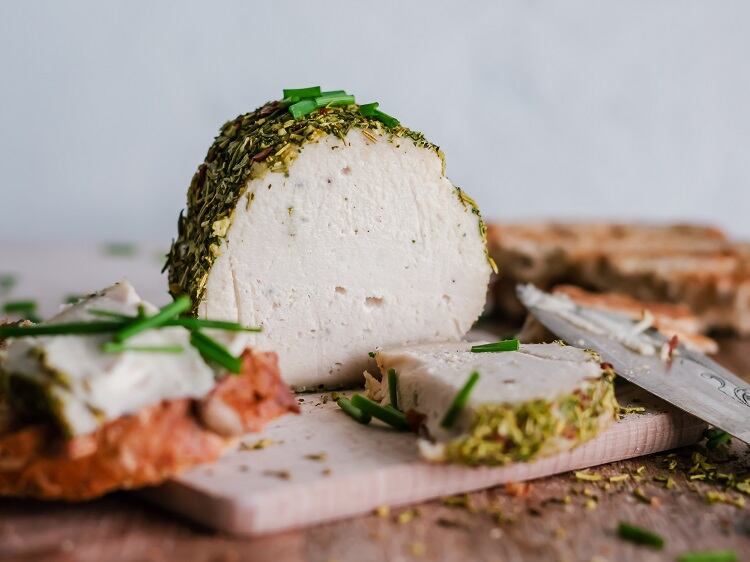
precursors found in plant proteins and oils.
These substances are in fact amino acids and fatty acids, which are converted into aroma-active substances by the process of microbial fermentation. Simultaneously, microorganisms can be used to break down typical off-notes (think grassy or beany notes) of plant-based raw materials.
The aim is that undesirable aromas be reduced and desired aromas enhanced in a plant-based milk alternative. This can then be acidified and coagulated by targeted fermentation with suitable microorganisms.
“Similar to the traditional cheese production process, the fermented, coagulated plant-based milk is finally pressed and subjected to ripening,” explain the researchers. “During the ripening process, the desired cheese aroma is generated and the mass solidifies due to water loss, to become a cheese-typical, elastic mass which results in products with an authentic cheese aroma and texture.”
Other collaborators in the KäromaVeg project include members of the agricultural industry, ingredients suppliers, starter culture and enzyme producers, and players in Germany’s Milk Industry Association. The project will run until 2025.


